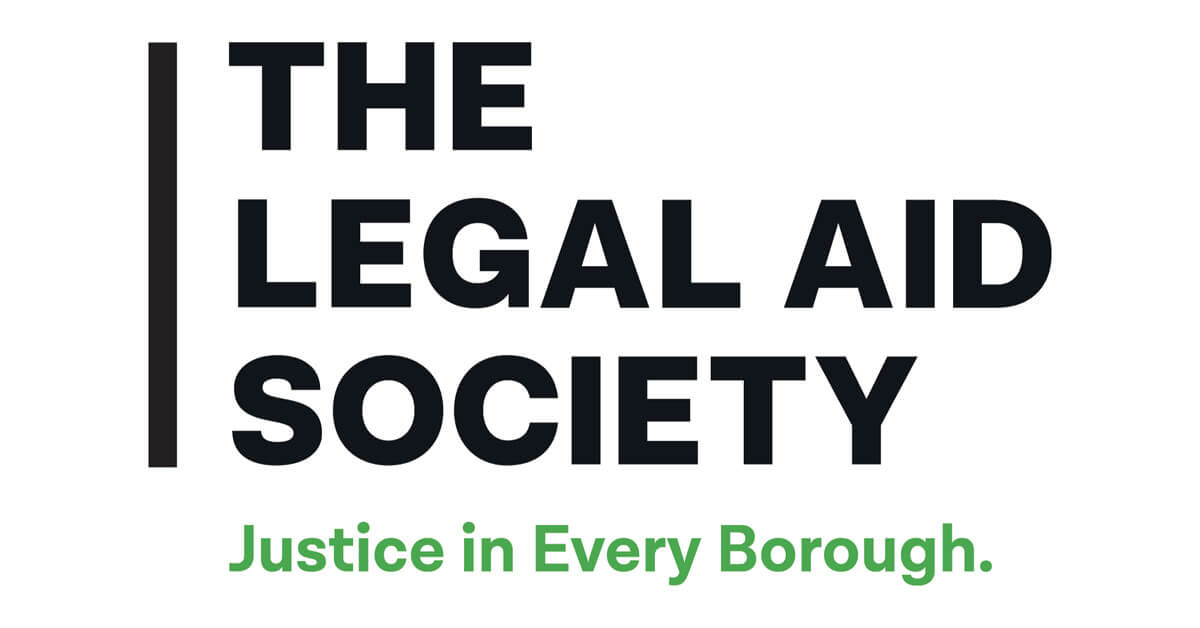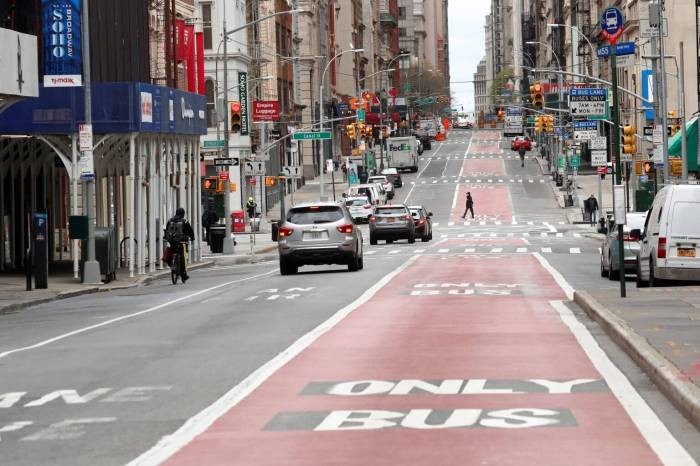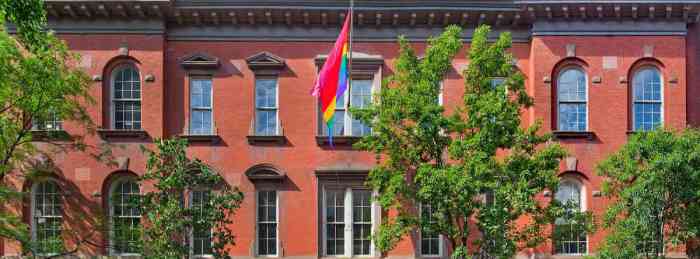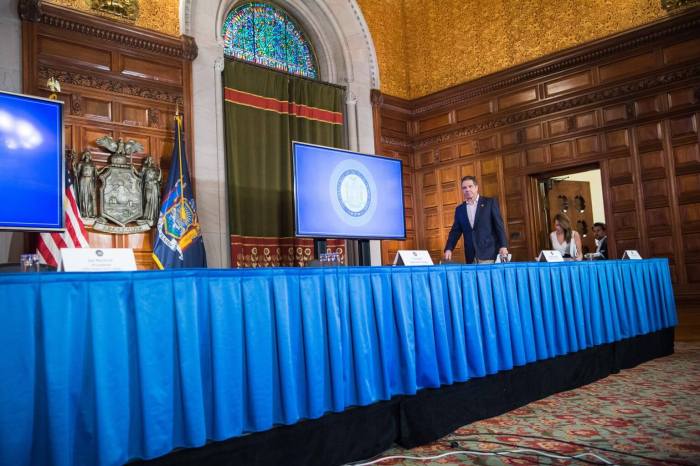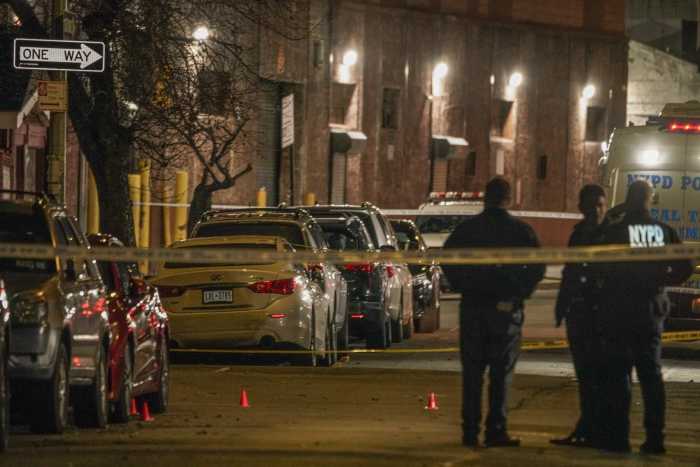With a record number of people losing their jobs as a result of the COVID-19 crisis, some of the bigger regular expenses — including owning a home or apartment — can become difficult to manage.
At the same time, with courts across New York state essentially closed, the legal consequences for non-payment have become muddied.
The Legal Aid Society, a nonprofit that offers legal services to low-income New Yorkers, explains some of the changes to mortgages and foreclosures in the wake of the coronavirus shutdown. The group provided this FAQ guide for homeowners:
I am behind on my mortgage. Can the lender start a foreclosure action?
No. On March 22, 2020, Judge Marks, Chief Administrative Judge of the Courts, issued an Order (AO/78/20), that no papers shall be accepted for filing, including e-filing, by a county clerk or a court in matters not deemed essential. At this time Foreclosures are not considered essential matters.
I received a Summons and Complaint and want to file an answer.
The court will not accept an answer during the crisis and your time to answer is extended.
I have an upcoming court date. Do I have to appear?
No. All civil courts, including the Supreme Court, are essentially closed except for emergency applications. Therefore, all non-essential court appearances, including Foreclosure settlement conferences, status conferences and appearances for pending motions are administratively adjourned until further notice.
What happens if my home is already scheduled for auction?
No auction can go forward, whether it has been already scheduled or not. The New York State Governor issued an Executive Order, which placed a 90-day moratorium on all evictions and foreclosures.
My home was sold at auction and the new owner wants me to move.
You can only be evicted after the new owner obtains a judgment from Housing Court or Supreme Court. However, Governor Cuomo issued an order that until June 20, 2020, no one can be evicted. If you have received any notices or threats or been illegally evicted, call our Housing attorneys at 212-577-3300.
As a result of COVID-19, we can’t afford our mortgage payment. Can we stop making payments?
No. You must first contact your lender or mortgage servicers to discuss your options. You will find contact information on your monthly mortgage statement. (You should expect extended wait times.)
I heard that lenders must offer a forbearance during the crisis?
Lenders must offer a forbearance only if you experienced a hardship as a result of the COVID-19 crisis. It is unclear at this time how this applies to homeowners who were behind prior to the COVID-19 crisis.
What is a forbearance?
By offering a forbearance, the lender will suspend or reduce your monthly mortgage payments for a certain period of time. During that time, your lender cannot charge late fees or send derogatory reports to one of the credit reporting agencies. However, it is not a waiver or forgiveness of the mortgage payment.
How many months does the lender have to allow the forbearance?
If your mortgage loan is FHA, VA, FNMA, or FreddieMac (federally-backed), you may be eligible for an initial period of six months or 180 days, which may be renewable for an additional 180 days. If your mortgage is not federally-backed, you may be eligible for a forbearance of up to 90 days.
How do I apply for the forbearance? What happens after the forbearance?
For federally-backed mortgages, you need only contact your servicer and affirm that your hardship was caused by COVID-19. If your loan is state-regulated, you should ask the servicer what, if any, documentation is required. Your servicer can provide more information how they will recoup payments.
I just submitted an application for a loan modification. Will my lender still review it?
Contact your lender or for further assistance contact one of the free services provided by either housing counseling organizations or legal service providers, such as The Legal Aid Society (contact information below). Beware of scammers that may make false promises and ask you to pay for mortgage relief.
I received a notice that my home is on the list for the tax lien sale to take place May 15.
Mayor de Blasio has postponed the tax lien sale until August of this year. Contact one of the free services provided by either housing counseling organizations or legal service providers, such as The Legal Aid Society to evaluate options to avoid the tax lien sale.
What if I am having trouble paying my water bill?
If you are having trouble paying your water and sewer charges, you should call the Department of Environmental Protection (DEP) at 866-622-8292 for assistance. To enter into a payment plan contact the collections department at DEP at 718-595-7890 to enter into a repayment plan. If your home has two or more apartments, arrears for water and sewer charges may be subject to the City’s tax lien sale.
How do I avoid scams?
Unfortunately, there are many scammers who will attempt to take advantage of this crisis. Only your mortgage servicer can grant a forbearance or any other type of mortgage relief if you have been affected by COVID-19. Ignore letters or calls, especially those from outside of New York State who make false promises of help. Do not pay anyone or sign papers before you consult one of the free legal service providers.
For more information and for help in dealing with your mortgage servicer or lender, leave a message with your name and telephone number on the Legal Aid Society Foreclosure Prevention and Homeowner Preservation help line and the Legal Aid Society will return your call within 24 hours: 646-340-1908 or 718-298-8979.
The Legal Aid Society’s borough phone numbers are:
- Manhattan: 212-426-3000
- Brooklyn: 718-722-3100
- Bronx: 718-991-4600
- Queens: 718-286-2450
- Staten Island: 347-422-5333
To sign up for the Gay City News email newsletter, visit gaycitynews.com/newsletter.

